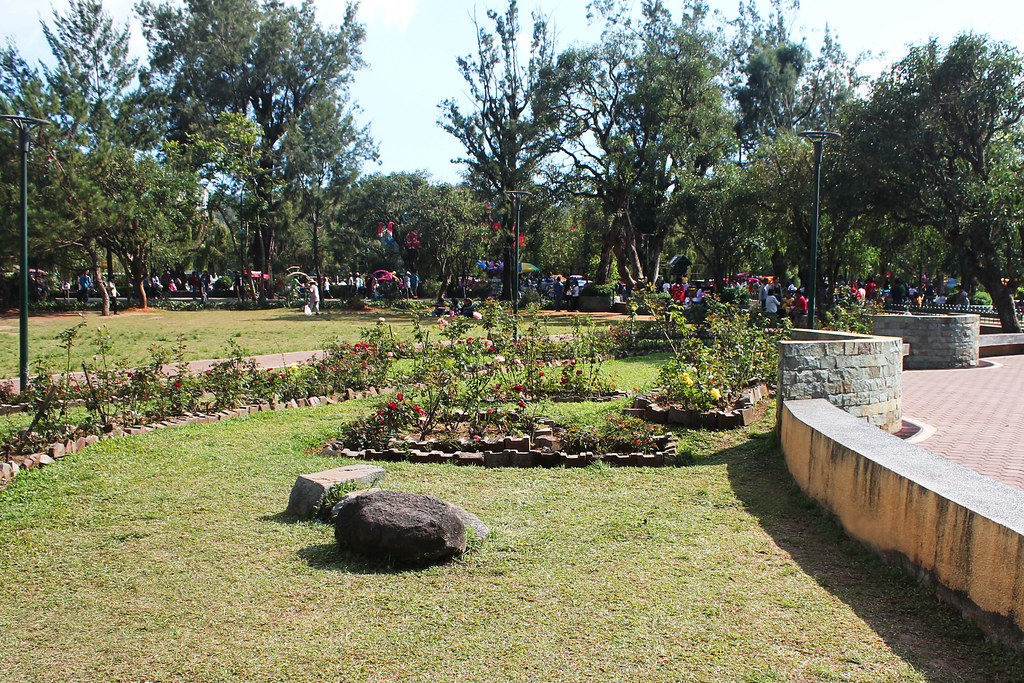30 January 2016
29 January 2016
Book Review: The Structure of Scientific Revolutions

I can understand why probably the author thanked his family for their consideration of the author's efforts towards this book, because it must have demanded a lot of painstaking effort not to mention time. I would have given it 3 stars for its complicated way of delivering its points, the language is highly complex that it tends at many certain points throughout, that the arguments contradict each other. Five stars, however for its complexity and taken as a whole it is actually coherent. The contradictory statements can be attributed to the fact that in science or fields of science, there is a particular paradigm that practitioners adhere to. However, this paradigm at specific points in history, encounter change brought about by new discoveries, anomalies or crises that can disprove it or demand that it be rejected or replaced. In this process, as what this book points out, there are resistances by scientists whether they will discard this paradigm or replace it - and thus, the phenomenon of Paradigm Shift will occur or whether practitioners will stubbornly cling to the original paradigm.
This historical process is nuanced and subtle because scientists even though they are eager to discover new phenomena on their field or contribute something original - are prone to protecting that particular paradigm that they follow. But crises and anomalies do certainly have to occur and be encountered, thus earlier theories have the potential to be discarded or new theories modified in such a way as to reduce contradictions with earlier theories. The gradual process of resistance and/or acceptance is highly nuanced and complex, hence the nature of this book. The presentation of analyses of the author can also be the reason why the book received critical comments particularly by philosophers of science, for instance, there was a comment whether 'he believes in reality?' Towards the end part, there is also the question of the evolution of human knowledge, whether it has a telos or whether, as compared to Dawinian concept, it evolves by itself towards a certain progression of which the goal is unknown.
No theory ever solves all the puzzles with which it is confronted at a given time; nor are the solutions already achieved often perfect. On the contrary, it is just the incompleteness and imperfection of the existing data-theory fit that, at any given time, define many of the puzzles that characterize normal science. If any and every failure to fit were ground for theory rejection, all theories ought to be rejected at all times. On the other hand, if only severe failure to fit justifies theory rejection, then the Popperians will require some criterion of "improbability" or of "degree of falsification". In developing one they will almost certainly encounter the same network of difficulties that has haunted the advocates of the various probabilistic verification theories [that the evaluative theory cannot itself be legitimated without appeal to another evaluative theory, leading to regress].
The author also contrasted his analyses with Karl Popper's method of falsification and demarcation of knowledge, and stated that this method as espoused by Popper, needs a certain criteria as where to base the falsification of theories, and what qualifies that criteria? Or if that criteria were to be stated, an infinite regress is inevitable. "Truth" is not the criterion of scientific knowledge, because it will have a tendency that once that "Truth" was discovered, that will mean the end of scientific search for knowledge - this is where Kuhn and Popper meet. However, whereas Kuhn would propose the concept of "Paradigm Shift" (he actually used the perceptual psychology concept of "Gestalt" in this sense), Popper proposed the method of falsification of scientific theories. Kuhn's concept can be regarded in the sense, that it is what actually happens in the enterprise of science (it is the actual event), but Popper's falsification even if it is used by practitioners remains an ideal method and the question arises, as to what specific criteria will that 'falsification' be based upon? That will have to be addressed, and I hope will be clarified on my reading of Karl Popper's "The Logic of Scientific Discovery" or "Logik der Forschung".
Although both concepts by Kuhn and Popper appear to be antagonistic as written by critics, I'm looking forward that in a way, what they actually proposed as regards their method of inquiry and analysis are reconcilable. After all, scientists and philosophers even though they devise systems of inquiry and discover phenomena, are not that arrogant to claim that they know the "Truth".
22 January 2016
No wonder, then, that in the early stages of the development of any science different men confronting the same range of phenomena, but not usually all the same range of phenomena, describe and interpret them in different ways. What is surprising, and perhaps also unique in its degree to the fields we call science, is that such initial divergences should ever largely disappear. For they do disappear to a very considerable extent and then apparently once and for all. Furthermore, their disappearance is usually caused by the triumph of one of the pre-paradigm schools, which, because of its own characteristic beliefs and preconceptions, emphasized only some special part of the two sizable and inchoate pool of information.
- Thomas S. Kuhn, The Structure of Scientific Revolutions, pg.17
10 January 2016
Book Review: The Teleological Ethics of Fakhr Al-Din Al-Razi
This monograph was adapted from the doctoral thesis of the author on the field of Islamic Intellectual History. It is, according to the author, a contribution to ethical philosophy and the thought of Fakhr al Din al Razi, who is one of the most influential thinkers in Islamic scholarship particularly in the medieval period. It is ironic to note that despite his influence in Islamic scholarship (he wrote a Tafsir [commentary] of the Qur’an), he is understudied.
Quoted from the Introduction,
The study is at once, both a comprehensive analysis of one of one major facet of Al Razi’s thought and an exploration of the main trends and debates in its wider intellectual background. It shows that he sets forth a sophisticated and original ethical theory, which is both eclectic and highly consistent internally.
The present study uses the most comprehensive selection of al Razi’s work to date, several are used for the first time. This has allowed a more accurate understanding of the complex developments that took place in his thought, which are often subtle, but sometimes striking.
Divided into four distinct, yet interrelated chapters, the book discusses al Razi’s metaethics, his ethics of action, his theory of virtue alongside the ethics of character and the influence of theory of virtue on his later theory of prophecy, and finally, an analysis of his work - ‘Censure of the Pleasures of the World.’
Al Razi was initially trained in the Ash’ari school of theology and later, he became acquainted with other schools of thought particularly the Mu’tazila and the Falsafa. The book discusses how he was able to synthesize the influences he had acquired from these schools of thought and his theological foundations through the Kalam methodology which he was able to review and revise throughout his intellectual career.
His theological foundations, however, remained intact despite the aforementioned influence from Mu’tazila and Falsafa, wherein he was able to refute certain notions that these schools upheld which contradicted the orthodoxy (though at certain instances he also departed from orthodoxy).
Al Razi develops his theory of action under the influence of various sources—Falsafa, Ash’ari and Mu’tazili—but he puts forth a unique solution. Although he maintains a number of central Ash’ari doctrines, he often preserves their formulaic, almost creedal, expressions, without much of their theoretical content and details… One debate is concluded by Muhammad Abduh, who remarks, “With al Razi’s explication, the position of the Shaykh [al-Ash’ari] unites with that of the Falasifa ... and the position of the Imam [al Razi] is the position of critical investigators (muhaqqiq)”. (pp.44)
As was mentioned by Muhammad Abduh by al Razi being in a position of critical investigator, he thus, was able to develop an ethical system of thought, which was, however constantly revised, remained consistent in its pessimistic and most often deterministic tone. For example in his statements such as:
- Man is compelled under the guise of a voluntary agent.
- Man is compelled in his choosing.
- Affirming determinism is inescapable.
The book is filled with the interactions between contrasting viewpoints from respective personalities from Mu’tazili and Falsafa such as Ibn Sina and Abu’l Husayn al Basri, including Ash’ari schools: debates, refutations, affirmations and explications – alongside references to al Razi’s works that dealt on the topic at hand.
The author did a great job not only in the citation of ideas and works, on his synthesis of reactions from each respective school of thought and al Razi’s key positions and revisions of ideas, but also on including his commentaries and impressions on these ideas. For example, upon quoting from a work by al Razi, Dr. Shihadeh (the author) then follows it with his own impression on the obvious tone of the passage by mentioning whether it conveyed that al Razi was being absolutely pessimistic on his view of, for example that ‘political ambition should not be pursued by a reasonable man,’ or for his deterministic tone, that ‘man is much more motivated to avoid pain than to pursue pleasure,’ or ‘man is compelled in his willing,’ or to what extent an idea or position stated had changed from a previous one.
The book was written in a non-technical easy to understand style. However, a background in Islamic theology, history, psychology of the instincts, philosophy (particularly theodicy) is recommended for the reader who would like to read this monograph.
Because of its academic treatment of the subject, I personally recommend it to the serious student of Islamic intellectual history due to its neutral, unbiased and balanced treatment of the topic at hand.
02 January 2016
Photo Collections
Cats | Art Gallery | Books | Food & Drink | Travel | Quotes | Architecture | Nature & Garden
Labels
Baguio Series
(15)
art
(70)
book excerpt
(57)
essay
(36)
food
(39)
ideals
(148)
insights
(97)
introspection
(35)
med school
(10)
monthly photo snippets
(27)
notes
(31)
photography
(218)
places
(127)
poetry
(1)
psychology
(43)
recipes
(9)
review
(31)
science
(10)
travel
(76)









